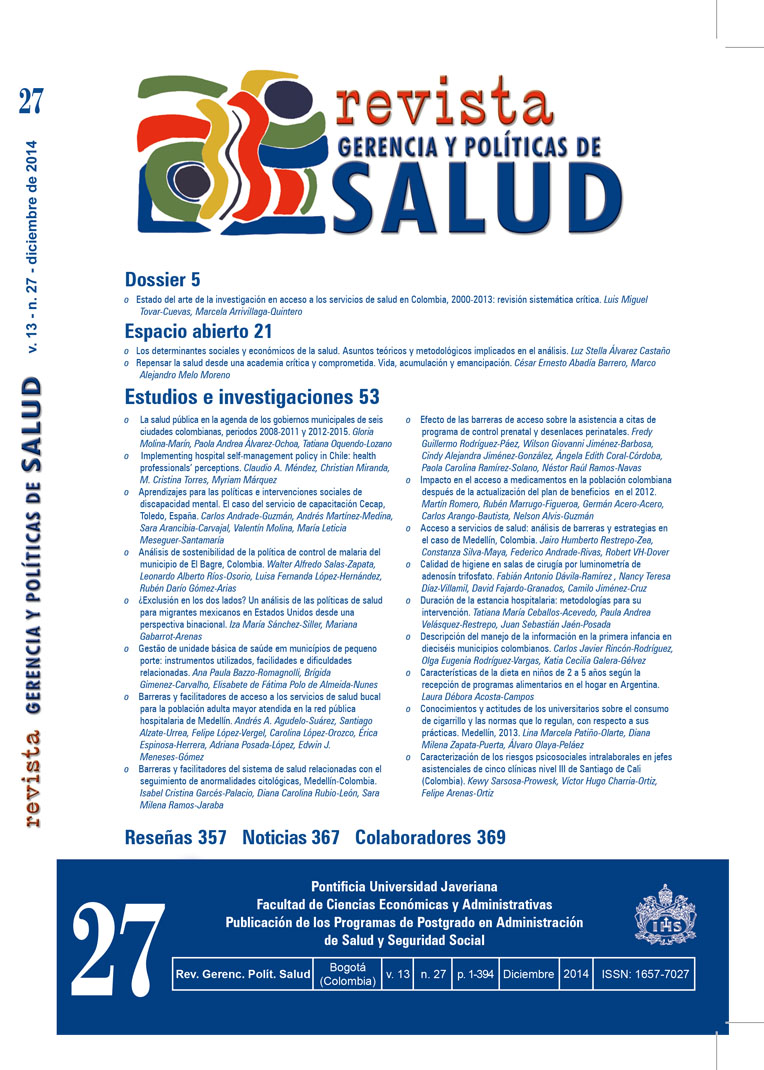Abstract
Recoger aprendizajes conceptuales para las iniciativas de discapacidad mental y determinarqué elementos metodológicos de intervención contribuyen mayormente a la inclusión del colectivo.Materiales y métodos: investigación centrada en el caso de Cecap, Toledo-España.1 Integró herramientascualitativas (revisión documental y entrevistas a, entre otros, sujetos de intervención) y cuantitativas(ahp datos estudiados con análisis de contenido y estadística. Resultados: la “especificidad” que orientaconceptual y metodológicamente la intervención de Cecap, dialogando con la cif-oms, el modelo socialy el enfoque de derechos, entiende al colectivo como personas con características específicas y diferenciadas,al igual que personas sin discapacidad. Metodológicamente, trabajar desde planes individualesde intervención, tiene la mayor prioridad para la inclusión. Conclusiones: las políticas e intervencionesdebiesen considerar instrumentos que reconozcan las características e intereses específicos de los sujetoscomo capitales pro inclusión.Copyright notice
The Journal Management and Health Policies is registered under the Creative Commons Recognition 4.0 International license. Therefore, this work can be reproduced, distributed and publicly communicated in digital format, provided that the name of the authors and the Pontificia Universidad Javeriana are recognized. It is allowed to quote, adapt, transform, autoarchive, republish and create from the material, for any purpose (including commercial), provided that authorship is properly acknowledged, a link to the original work is provided and if changes have been mad. The Pontificia Universidad Javeriana does not retain the rights over published works and the contents are the exclusive responsibility of the authors, who preserve their moral, intellectual, privacy and publicity rights.
The endorsement of the intervention of the work (revision, style correction, translation, layout) and its subsequent disclosure is granted through a license to use and not through a transfer of rights, which means that the journal and the Pontificia Universidad Javeriana disclaims any liability that may arise from ethical misconduct on the part of the authors. As a result of the protection provided by the license for use, the journal is not obliged to publish retractions or modify the information already published, unless the erratum arises from the process of editorial management. The publication of contents in this magazine does not represent royalties for taxpayers.


